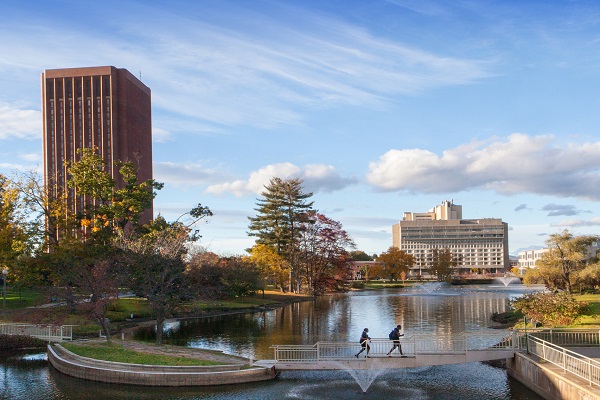University of Massachusetts Amherst: UMass iCons Students Partner with the Museum of Science, Boston, to Tackle Climate Justice
Students at the University of Massachusetts Amherst recently released the results of their semester-long projects, conducted in partnership with the Museum of Science (MOS), Boston, which looked at how to decrease Boston’s carbon footprint. The projects, part of UMass’s Integrated Concentration in Science program, or iCons certificate program, are an outgrowth of the Go Carbon Neutral Challenge, a competition organized by the MOS and General Motors that solicited student proposals for innovative ways to reduce the transportation sector’s carbon footprint — the biggest source of emissions nationally.
Nine UMass teams spent the semester coming up with creative solutions to a problem posed by Jonathan Fanning, project lead from MOS: What options do individual Bostonians have to decrease their reliance on carbon-intensive transportation?
“What made this such an interesting, multidisciplinary question,” says Justin Fermann, iCons associate director of academics, “is that students had to come up with a way to measure choice. Making progress required data collection and analysis on physical transportation infrastructure, community perceptions and public policy options.”
The results were creative, intensive and varied. One team analyzed access to public transportation, using a mathematical equation of their own devising, to figure out if quantifying transportation accessibility for different areas would help pinpoint structural and systemic inequities. The team considered factors such as the density of bus stops and quality of crosswalks, and discovered a correlation between accessibility to low-carbon transportation and average household income: the higher the income, the more options for public transportation.
Cleo Hein, an industrial engineering student and iCons participant, worked with a different team, one dedicated to mapping access to public transportation in the greater Boston area, which they then displayed on an easily accessible map. “We created a ‘blob map,’” says Hein, “using data from the Massachusetts Bay Transit Authority (MBTA). You can hover over any area on the map and receive an accessibility score between 1 and 100. The more access to public transportation there is, the higher the score.”
“The part I loved the most,” said Hein, “is that iCons is such a collaborative process of using science to tackle real-world problems with our professors and members of the public.” The feeling was mutual. “We’re very excited about working with the UMass iCons Program on this and future projects,” Fanning added. “The MOS and iCons missions’ are basically the same —inspiring love of STEM across diverse populations. Becoming partners was natural.”

